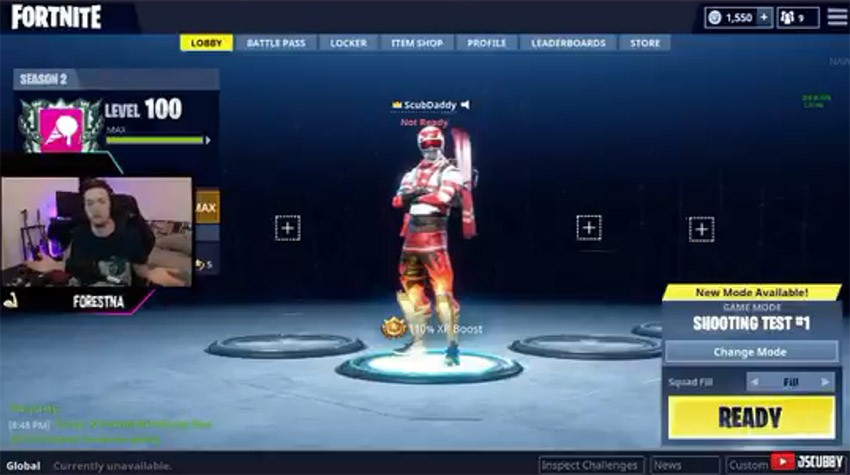
Content notice: Discussion of suicide; strong language.
What do you do when you’re a streamer and one of your viewers reaches out for help? Among my geeky colleagues and a multitude of streamers, addressing mental health needs on Twitch and other streaming platforms has been a growing concern, especially given the lack of research that exists on the topic. It can be a scary thing when people come to you because they don’t know what to do and think you might have answers, especially if you don’t know how to help them.
While there are ongoing debates and discussions about the right way to approach the topic, there are wrong ways. Recently, Partnered Twitch streamer Jordan “Scubby” Selleck addressed how he would handle suicidal ideation from others by saying, “I would dare them to do it and then I would never talk to them again. If I saw them in real life again, I’d be like wow, dude, you didn’t commit suicide… I cannot be surrounded by people that do that shit, I will literally lose my mind.” On the topic of anxiety, he plainly stated, “That shit is fake.”
There are so many problems packed into one short video. Firstly, if someone comes to you and confides that they are contemplating ending their own life, they are deeply hurting, plain and simple. They are also taking the risk and reaching out to you. Telling them to do it and then shunning them doesn’t help them. It likely makes their pain worse by making them feel even more isolated and disconnected than they probably already do.
As for his insistence that anxiety is fake, Scubby also implies that because people don’t talk to him about anxiety any longer, they didn’t have it to begin with. I won’t pretend to know the dynamic of his relationships, but I will say that when people know that someone will dismiss or reject their challenges as fake or overblown, it often discourages them in addressing those challenges with that person. It creates a punishing situation in which the person is shamed for their challenges instead of being helped. This is a double whammy, as now they have the original challenge as well as the added challenge of being punished for reaching out.
Scubby has since apologized and his channel has been suspended, but clearly, we can do better. So, what do you do if someone confides in you on your stream that they are struggling? The good news is that there are resources. Recently, Take This partnered with the AdCouncil and the American Foundation for Suicide Prevention (AFSP) to offer a one-page guide for streamers and moderators which we presented at TwitchCon 2017. The take-home point of this guide is that you don’t have to personally fix all their problems. You can compassionately and empathically acknowledge others’ struggles and simultaneously empower them with resources.
Additionally, we have a variety of mental health resources on Take This’ website. We update it periodically as we find more resources. This list covers a wide range of topics, including crisis lines in different countries, apps and websites that others have found useful, as well as tips on how to find a therapist who works for you. Twitch also provides tips for addressing others’ concerns in your chat and other mental health resources.
It’s possible to create a Twitch stream that balances entertainment and compassionate inclusion. Take This has worked with many streamers who have successfully done so. They have different styles in how they include people, but there is a common thread among them all: compassion and empathy. Let’s all strive to treat others with the compassion and empathy we would want for ourselves when we reach out for help.
This article is not a substitute for medical advice or professional counseling. While we at Take This want to provide you with resources, we do not recommend or endorse any particular site, treatment, therapy, or resource. We provide these links at our sole discretion but have not necessarily vetted or reviewed any particular resource. We assume no liability for the use of the information or resources on these sites and encourage you to use your own best judgment when reviewing these resources.
If you live in the US and you’re having suicidal thoughts, reach out to the Suicide & Crisis Lifeline or call/text 988. If you’re outside the US, you can find local crisis lines at Suicide.org. If you’re even debating whether you should call them, you should call them. The Suicide & Crisis Lifeline handles all psychological crises, not just suicide.
